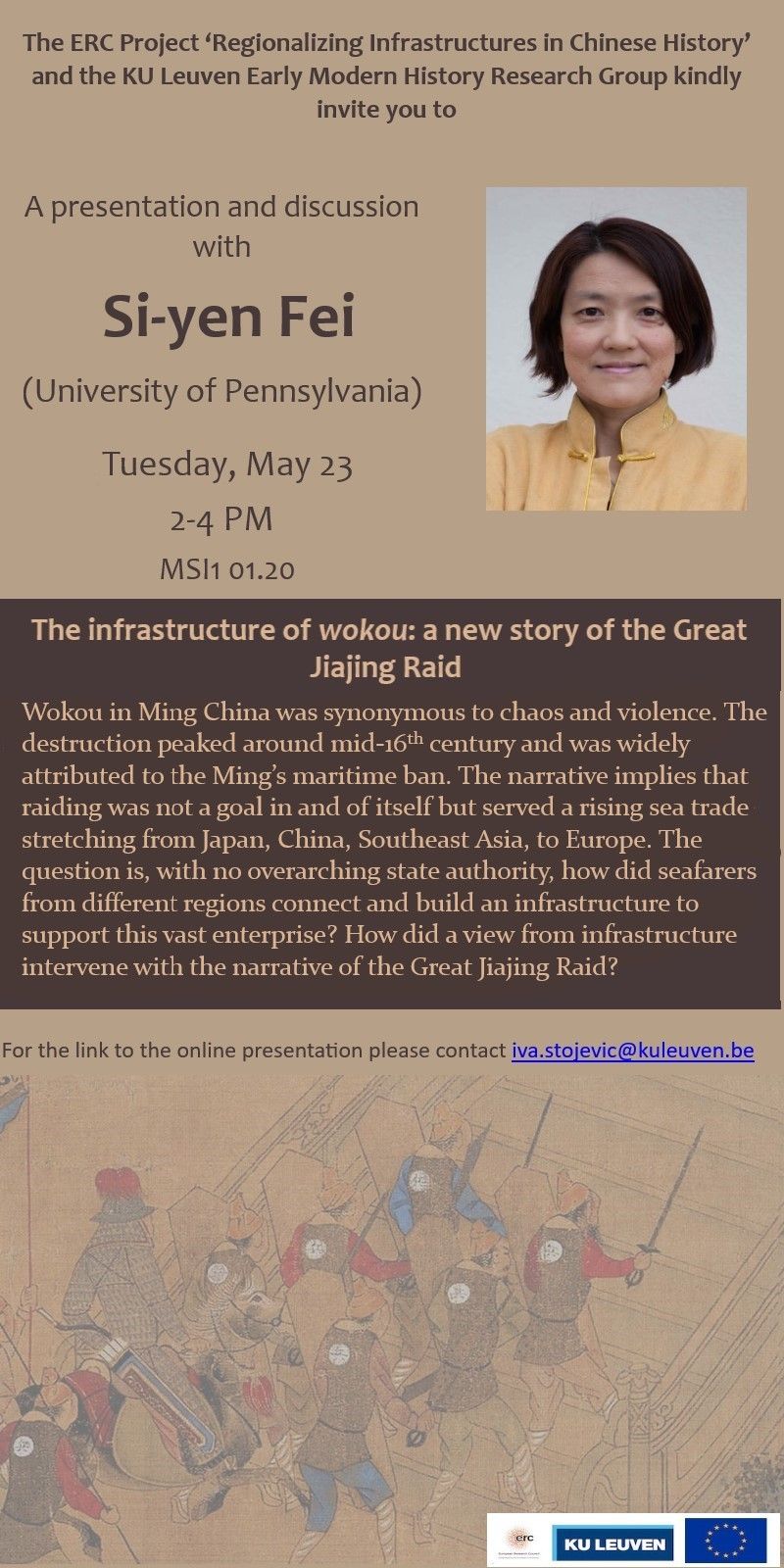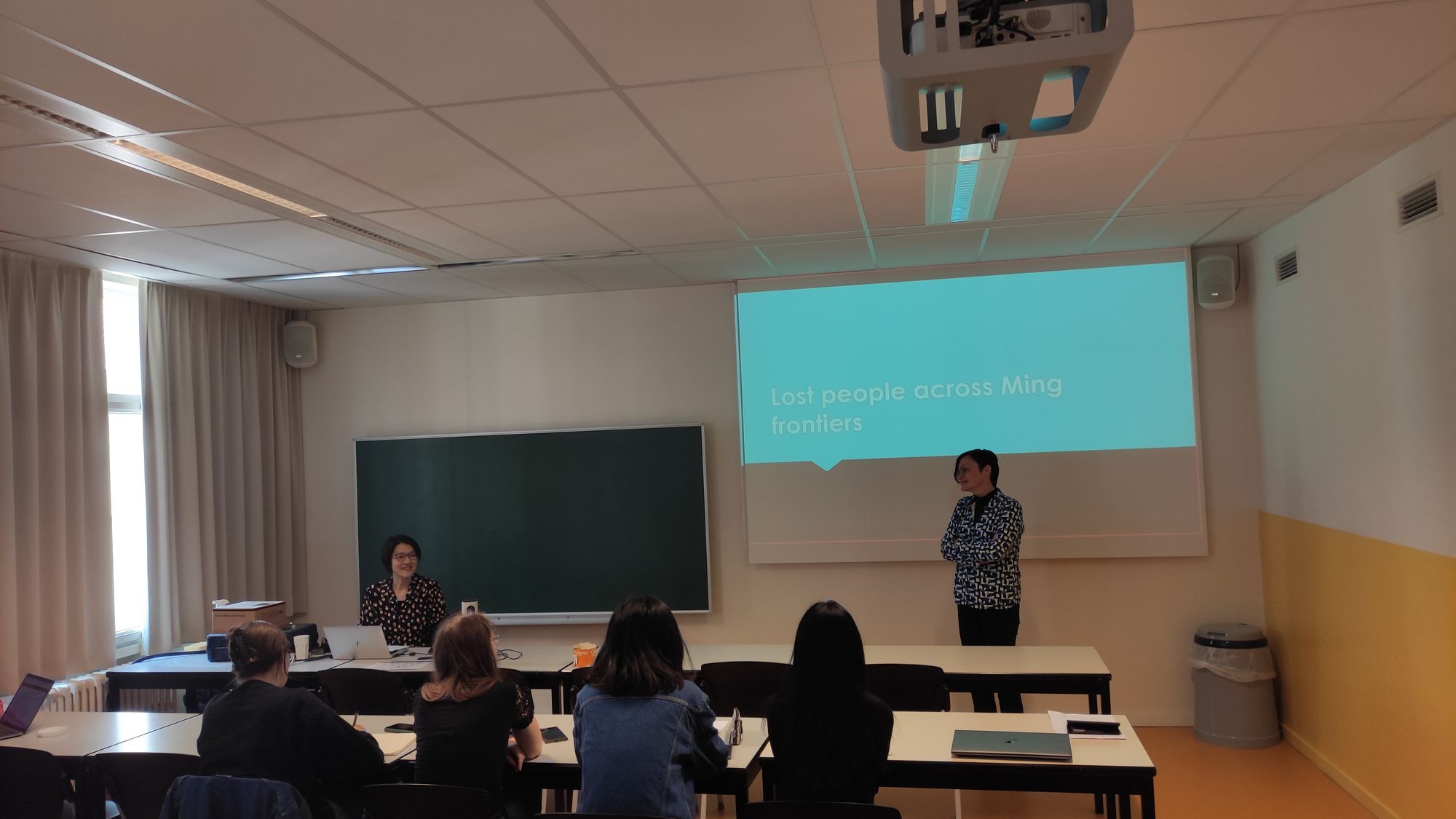
The ERC Project ‘Regionalizing Infrastructures in Chinese History’ and the KU Leuven Early Modern History Research Group kindly invite you to a presentation and discussion with Prof. SI-YEN FEI. The talk, titled The infrastructure of wokou: a new story of the Great Jiajing Raid, will take place on Tuesday, May 23, at MSI1 01.20 at 2 PM.
About the talk: Wokou in Ming China was synonymous to chaos and violence. The destruction peaked around mid-16th century and was widely attributed to the Ming’s maritime ban. The narrative implies that raiding was not a goal in and of itself but served a rising sea trade stretching from Japan, China, Southeast Asia, to Europe. The question is, with no overarching state authority, how did seafarers from different regions connect and build an infrastructure to support this vast enterprise? How did a view from infrastructure intervene with the narrative of the Great Jiajing Raid?

About Si-yen Fei: Si-yen Fei received her PhD degree from Stanford University in 2004. She teaches and researches Chinese history at University of Pennsylvania. Her work to date is primarily concerned with the political and cultural activism of sixteenth- and early seventeenth-century Ming dynasty China (1368-1644). She has authored two books: Negotiating Urban Space: Urbanization and Late Ming Nanjing and From Extraordinary Models to Ordinary Norms: the Normalization of Chastity Practice in the Ming China. Her current book project Sexuality and Empire: Female Chastity and Frontier Societies in Ming China (1368-1644), takes on a highly politicized issue in China: identity. The book looks at the life and struggle of people at the borderlands who found themselves caught in the making and unmaking of the Ming empire and examines how they confronted their plight on their own terms.
The talk will be available via an MS Teams link, for those who cannot attend in person. For the link please contact [email protected]